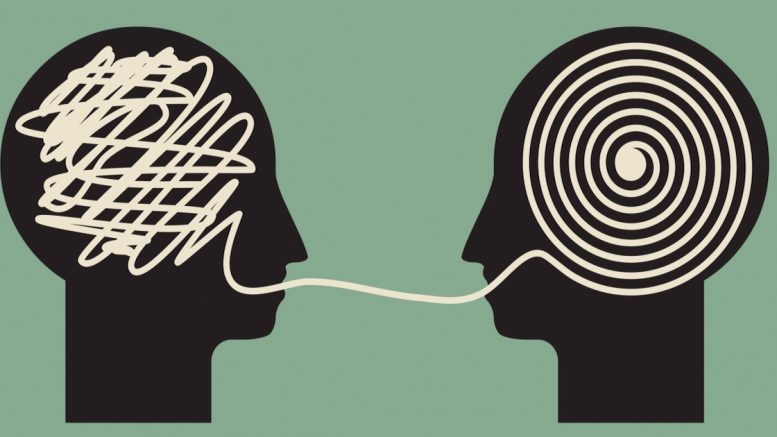Planning and organisational skills are important skills a professional must acquire and excel in her/his professional journey. Organisational skills may include strategic planning, prioritising, decision making, time management and more. Having an organised mind leads to being organised at work and at home. It not only increases your productivity but also improves mental health by reducing stress and chaos.
A disorganised mind directly or indirectly leads to incomplete tasks, chaos and confusion in order of performing jobs, bad time management and more such issues. These in turn have a negative impact on mental health as stress levels rise and the pressure of not being able to perform increases. Most of the time such problems can be resolved by simply organising your thoughts and planning the day well and in advance.
Some people are naturally and subconsciously organised in their minds while some need to consciously develop this skill. So how can one develop this skill? Here are a few things that may help you. These can be applied to your work as well as home.
Identify/understand the task at hand – Whether at work or at home, it is important to firstly understand the task at hand. What does the task require out of you? What is the level of engagement and responsibility needed? Once you have clear answers to these, the next steps follow.
Set time required – Once you have understood the tasks to be done, you need to set the time required for each task. There may be five minute tasks, hour long tasks or longer tasks. Plan and set the time you foresee each task will require. WHile working on a task, if you feel you need more time than planned, then you may need to prioritise and see if you can give more time right away, or plan for it later. If you get done earlier, great!. Note down differences between the planned and actual time required as this will also help you plan for similar tasks later.
Set timelines – Just like expiry dates on food packets, tasks have expiry times too. Plan accordingly. If you need to go for a haircut over a weekend, it cannot be done at 7 in the morning or 8 in the evening. Plan accordingly. If an email needs to be sent at 11 am – be sure you are ready with it in drafts by 1045 am. Setting timelines ensures punctuality and increases productivity. It would be a complete waste of time if you spend an entire morning doing tasks that could have been done later in the day and then fret in the evening worrying when those urgent morning tasks will be completed.
Prioritise and manage time better – All of you would have heard about the Eisenhower matrix for time management and decision making. If you haven’t then search for it and study it today. It is a very simple matrix that can help you manage time better by helping you decide on important, urgent, not important and not urgent tasks. Study it; understand it; apply it! It really helps. Once you have categorised tasks and put them in appropriate quadrants, it is much easier to prioritise and plan your day better.
Stay focussed – Keeping your focus on the tasks at hand is critical. In these digital times, when we have the entire world on our hand held devices, it is very easy to get distracted. But remember the matrix – web browsing, social media scrolling, commenting on family & friends’ status updates all of these fall in the not important, not urgent quadrant and are best left for a time when your planned tasks for the day have been completed. Distractions often take up way more time than one can foresee and can therefore completely throw your schedule off track. So stay focussed!
Take breaks – Taking regular breaks is just as important as getting jobs done. If you feel proud saying that you’ve been working so much that you’ve had no time for breakfast or lunch, well I’m sorry to say but you’re not doing something right. Planned regular breaks are essential to refresh your mind, reduce anxiety and in turn improve productivity
Prepare a task list – The last point in my list but the most important of all. In order to achieve all that has been written above, it is essential to prepare a daily task list with serial numbers and deadlines against each task. Don’t trust your brain to remember all tasks in priority order, rather I would say don’t burden your brain to do this additional job which can very well be done in a better way. As you start your day, spend 15 minutes to list down your daily tasks, in order of urgency and importance. Ensure you mention the date on top and serial numbers and deadline against each task. Ensure your task list has breaks factored in. As you complete a task, put a check mark against it. Check marks give you mental satisfaction that you are proceeding through your day well and as planned. At the end of the day remember to close the task list either by completing or tasks or by carrying forward tasks to the next day. Task lists have helped me a great deal – I make one for weekends too and have taught my kids to do the same.
An organised mind helps you achieve more, makes you more efficient, reduces clutter and chaos and ultimately improves the quality of life – professionally and personally.
The views and opinions published here belong to the author and do not necessarily reflect the views and opinions of the publisher.




I experienced that a restful, stress-free and centered mind brings clarity, focus and heightened awareness. All things follow suit such as organizing, clarity in speech and dynamism in action. And breath is an important tool we all possess to achieve this. I found an amazing breath-based meditation technique SKY Breath (from The Art of Living org.) that cleanses deep-rooted stress and declutters the mind.